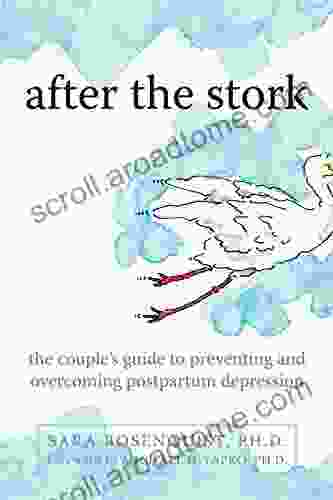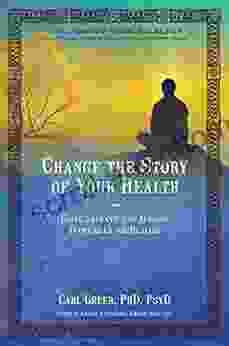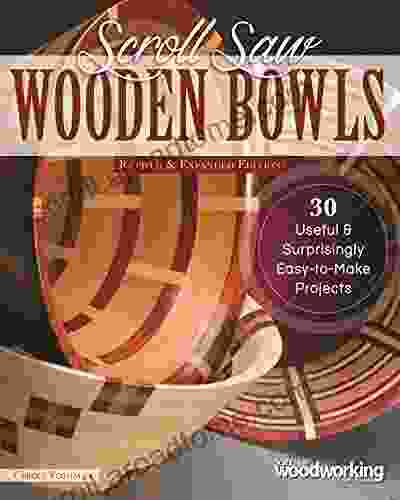The Couple's Guide to Preventing and Overcoming Postpartum Depression: A Journey of Support and Empowerment

The arrival of a newborn is a life-changing event filled with joy and anticipation. However, for many couples, the transition into parenthood can be overshadowed by a debilitating condition known as postpartum depression (PPD). Affecting up to 20% of women, PPD is a serious mental health condition that can have lasting effects on both the mother and the family.
This comprehensive guide is designed to provide couples with the essential information, strategies, and support they need to prevent and overcome PPD. By understanding the causes, symptoms, and risk factors, couples can take proactive steps to safeguard the mother's mental health and create a nurturing environment for their newborn.
Postpartum depression is a mood disFree Download that typically develops within the first year after giving birth. It is characterized by persistent feelings of sadness, anxiety, and hopelessness. Symptoms can include:
4.1 out of 5
| Language | : | English |
| File size | : | 892 KB |
| Text-to-Speech | : | Enabled |
| Screen Reader | : | Supported |
| Enhanced typesetting | : | Enabled |
| Word Wise | : | Enabled |
| Print length | : | 274 pages |
- Persistent sadness or irritability
- Frequent crying spells
- Loss of interest in activities once enjoyed
- Difficulty sleeping or sleeping excessively
- Changes in appetite
- Difficulty concentrating or making decisions
- Feelings of guilt or inadequacy
- Thoughts of harming oneself or the baby
If you or your partner are experiencing these symptoms, it is crucial to seek professional help immediately. PPD is a treatable condition, and with the right support, it is possible to make a full recovery.
The exact causes of PPD are not fully understood, but several factors have been linked to its development, including:
- Hormonal changes: After giving birth, a woman's body undergoes significant hormonal fluctuations that can contribute to mood swings and emotional instability.
- Sleep deprivation: The demands of caring for a newborn can lead to severe sleep deprivation, which has been shown to increase the risk of depression.
- Physical recovery: The physical recovery from childbirth can be stressful and painful, adding to the emotional toll of the transition.
- Psychological factors: Women who have a history of depression or anxiety are more likely to experience PPD. Stressful life events during pregnancy or after giving birth can also increase the risk.
- Social support: Lack of support from family, friends, or a partner can make it more difficult to cope with the challenges of postpartum recovery and increase the likelihood of PPD.
Preventing and overcoming PPD requires a comprehensive approach that involves both the mother and her partner. Here are some key strategies:
- Prenatal education: Attending prenatal classes and reading books about postpartum health can help prepare couples for the challenges and changes to come.
- Building a support network: Identifying a supportive network of family, friends, and healthcare professionals can provide a safety net for the mother during and after pregnancy.
- Taking care of physical health: Maintaining a healthy diet, exercising regularly, and getting enough sleep are essential for both physical and mental well-being.
- Managing stress: Identifying and developing effective coping mechanisms for stress can help prevent stress from escalating and contributing to PPD.
- Early identification: Recognizing the signs and symptoms of PPD is crucial. If you suspect that your partner is experiencing PPD, encourage them to seek professional help immediately.
- Treatment options: Treatment for PPD typically involves a combination of medication, therapy, and support groups. Antidepressants can help regulate brain chemistry and alleviate symptoms. Therapy provides a safe and supportive environment for the mother to process her emotions, learn coping skills, and build resilience.
- Partner support: The partner plays a vital role in supporting the mother during recovery from PPD. Providing emotional support, assisting with practical tasks, and advocating for their partner's needs are essential for creating a supportive and nurturing environment.
- Self-care: It is important for both the mother and the partner to prioritize their own self-care needs. Taking time for rest, relaxation, and activities that bring joy can help reduce stress and promote well-being.
There are numerous resources available to support couples navigating postpartum depression:
- Mental Health Professionals: Psychotherapy and counseling can provide individualized support and guidance for couples affected by PPD.
- Support Groups: Joining support groups can connect couples with others who are going through similar experiences and provide a safe space to share feelings and offer support.
- Online Resources: Websites, forums, and apps can provide information, support, and tools for coping with PPD.
- Community Health Centers: Many community health centers offer mental health services and support for families struggling with PPD.
- Postpartum Support International (PSI): PSI is a non-profit organization dedicated to providing support and resources to women and families affected by postpartum depression.
Postpartum depression is a real and serious condition that can affect the health and well-being of both the mother and the family. By understanding the causes, symptoms, and risk factors, couples can take proactive steps to prevent PPD and ensure a smooth and healthy transition into parenthood.
If postpartum depression does develop, it is crucial to seek professional help immediately. With the right support and treatment, it is possible to make a full recovery and build a strong and loving family. Remember, you are not alone in this journey, and there are resources available to help you through every step of the way.
4.1 out of 5
| Language | : | English |
| File size | : | 892 KB |
| Text-to-Speech | : | Enabled |
| Screen Reader | : | Supported |
| Enhanced typesetting | : | Enabled |
| Word Wise | : | Enabled |
| Print length | : | 274 pages |
Do you want to contribute by writing guest posts on this blog?
Please contact us and send us a resume of previous articles that you have written.
 Book
Book Novel
Novel Page
Page Chapter
Chapter Text
Text Story
Story Genre
Genre Reader
Reader Library
Library Paperback
Paperback E-book
E-book Magazine
Magazine Newspaper
Newspaper Paragraph
Paragraph Sentence
Sentence Bookmark
Bookmark Shelf
Shelf Glossary
Glossary Bibliography
Bibliography Foreword
Foreword Preface
Preface Synopsis
Synopsis Annotation
Annotation Footnote
Footnote Manuscript
Manuscript Scroll
Scroll Codex
Codex Tome
Tome Bestseller
Bestseller Classics
Classics Library card
Library card Narrative
Narrative Biography
Biography Autobiography
Autobiography Memoir
Memoir Reference
Reference Encyclopedia
Encyclopedia Patricia Bosworth
Patricia Bosworth Colleen Shantz
Colleen Shantz Daniel Perret
Daniel Perret Carolyn Merchant
Carolyn Merchant C K Carlton
C K Carlton Li Zhao King
Li Zhao King Carter J Eckert
Carter J Eckert Orly Krauss Winer
Orly Krauss Winer Sarah E Baires
Sarah E Baires Carolyn M Kaelin
Carolyn M Kaelin Caleb Warnock
Caleb Warnock Byron Brown
Byron Brown Jonathan Beller
Jonathan Beller Ken Jp Stuczynski
Ken Jp Stuczynski Shreefal S Mehta
Shreefal S Mehta Peter C Appelbaum
Peter C Appelbaum Carol Waters
Carol Waters Cam Nguyen
Cam Nguyen Bruce W Long
Bruce W Long Paul Bacon
Paul Bacon
Light bulbAdvertise smarter! Our strategic ad space ensures maximum exposure. Reserve your spot today!

 Cruz SimmonsUnleash the Transformative Power of Philosophical Virtues and Psychological...
Cruz SimmonsUnleash the Transformative Power of Philosophical Virtues and Psychological... Fyodor DostoevskyFollow ·11.4k
Fyodor DostoevskyFollow ·11.4k Douglas AdamsFollow ·17.6k
Douglas AdamsFollow ·17.6k Hassan CoxFollow ·6.4k
Hassan CoxFollow ·6.4k Elton HayesFollow ·14.2k
Elton HayesFollow ·14.2k Kevin TurnerFollow ·5.1k
Kevin TurnerFollow ·5.1k Christopher WoodsFollow ·10.9k
Christopher WoodsFollow ·10.9k Johnny TurnerFollow ·17.7k
Johnny TurnerFollow ·17.7k Eli BrooksFollow ·3.6k
Eli BrooksFollow ·3.6k

 Shawn Reed
Shawn ReedEmbark on a Transformative Journey: Discover Ritual...
Delve into the Enigmatic World of...
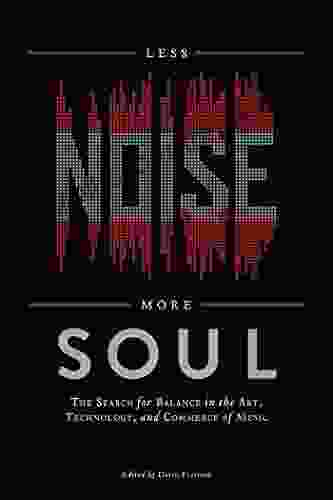
 Connor Mitchell
Connor MitchellUnleash Your Soul: A Journey to Less Noise, More Soul
Embrace the Power of Silence...
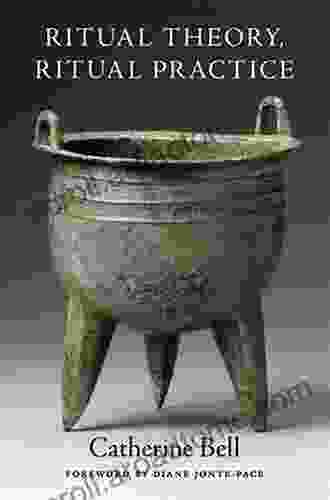
 Derek Cook
Derek CookRitual Theory, Ritual Practice: Unlocking the Secrets of...
Rituals have been an...

 Evan Hayes
Evan HayesStop the Itch: Simple Steps to Lasting Relief
Itching, an...

 Herman Mitchell
Herman MitchellThe Ultimate Premarital Guide: Your Essential Wedding...
Congratulations on your engagement! This is...
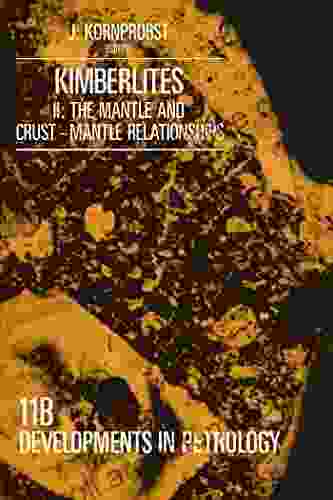
 DeShawn Powell
DeShawn PowellUnlocking the Enigma of the Mantle: A Deep Dive into "The...
Our planet,...
4.1 out of 5
| Language | : | English |
| File size | : | 892 KB |
| Text-to-Speech | : | Enabled |
| Screen Reader | : | Supported |
| Enhanced typesetting | : | Enabled |
| Word Wise | : | Enabled |
| Print length | : | 274 pages |


